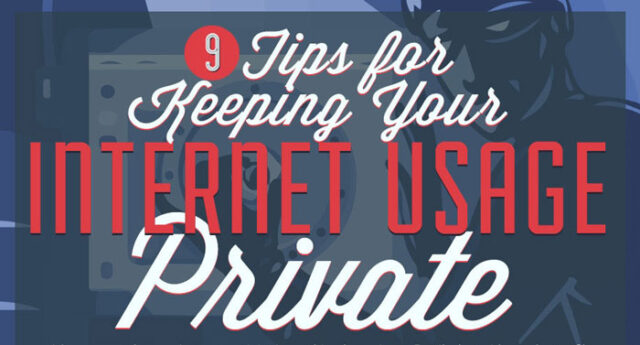

You are probably concerned about your privacy online. Many people are worried but there’s a high number of users that are not at all. They freely share everything and anything on social platforms paying almost no attention to their private settings. Google is tracking every keyword they are searching. It’s very easy for people to get paranoid when it comes to this, but is it even possible to keep all the web activity totally private? Most of the users would immediately answer with no. With all the access to emails and social networks it’s so easy to dig up something online. There’s a big loss of privacy and what was once just troubling possibility it has now become uncomfortable reality. The online world is immersed with astonishing big amount of information, and the rule is oversharing everything.
Every minute there’s almost 640,000 GB of data transmitted online, with almost 50,000 apps download. Google is handling more then 2 million user searches. Logically not all that is shared are pics of your friends lunch or funny cat videos. Every minute online, 20 people are actually victims of identity theft. Whats even worse, there are even more users that are victims of data mining. Depending which browser you’re using to go online, every website review, every click or purchase can be analyzed. This is sadly just tip of the iceberg of information. While its impossible to keep all your data private, luckily there are ways you can keep some of the personal information more secured and safe.
Tips on how to keep your Internet usage private
Search engines like Bing and Google are tracking the usage of your data and history of searches. If you can get rid of the old habits and searching through this sites you can consider using pages like Blekko or DuckDuckGo. There you can set settings for privacy and disable tracking of the data and pages you visit. There are also few of other good alternatives like startpage.com and ixquick.com. Websites can also take advantage in a way of cookie features. All the popular web browsers like Safari, Google Chrome or Mozilla Firefox are tracking what you’re searching online even if you enabled incognito mode or private browsing. You can start using Firefox 21 which is only providing limited number of data to vendors or Opera web browser because they claim they don’t collect or share personal information. Wi-fi hotspots that are unsecured can be big security threat. Use virtual private network as this can give you protection against someone who could try to intercept your session online.
While there are many options to secure your data this doesn’t mean you need to completely delete your Gmail account. If your email service allows it you can encrypt your message when they are sent or saved. But always think twice about what you’re sending through email. Use the 2 factor authentication for email. Let’s keep it real, you’re probably not going to completely erase yourself online. It’s really unrealistic to think that you will completely stop using Apple or Microsoft providers along with the disconnecting from various social media platforms. So while you know your internet privacy is not completely possible it’s important to take some crucial steps in order to secure your sensitive information.













